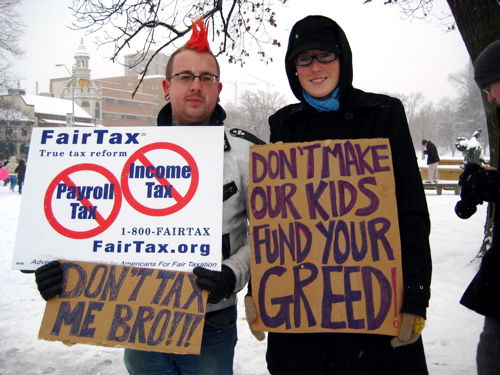Now must be a hard time to be an idiot in the American press. You go to all the trouble of writing a book that says the party whose national committee you chair isn’t ready to lead, get yourself on Hannity and make a bunch of invidious comparisons, then wrap up your remarks with an old-timey ethnic slur, only to be bumped from the national snarklight by Sarah Palin. You just can’t compete with that bitch. It seems like every time a prominent political figure does something stupid, Sarah Palin jumps in and yells that FDR faked polio so he could sit down all the time or whatever. Sometimes it feels like the incompetence of major political figures exceeds demand, and guys like Michael Steele—who would be saying crazy shit at Wisconsin Right To Life rallies in any other incompetence economy—are forced to practice their art in obscurity. Poor Michael Steele. When it comes to being a complete jerkoff, he’s Salieri to Palin’s Mozart.
Category Archives: michael steele
Stronger than reason: David Brooks on the Tea Party
He’s been wrong before, but when David Brooks says you’re a nationwide movement, you’re either Soccer Moms in the 2004 general election or a real thing. In Monday’s New York Times, Brooks alleges that the Tea Party movement is the latter. After opening with his usual overview of the prevailing sociopolitical winds for the last thirty to 100 years, he gets to the money shot. “Every single idea associated with the educated class has grown more unpopular over the past year,” he writes. For the moment, Brooks has declined to enumerate which instruments he uses to measure the popularity of ideas, but he at least sounds right. “The educated class believes in global warming, so public skepticism about global warming is on the rise,” he says. “The educated class supports abortion rights, so public opinion is shifting against them. The educated class supports gun control, so opposition to gun control is mounting.” Those committed to responsible argument will object to Brooks’s questionable use of the word so, which makes his theory the cause of his evidence, but as and statements his list still draws an unsettling connection. When Brooks points out that the Tea Partiers are defined by what they are against, and that most of what they are against can be grouped under “the concentrated power of the educated class,” he introduces a framework as useful as it is terrifying.


